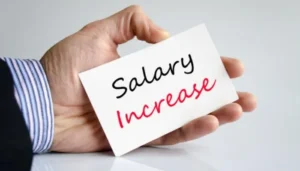Central government employees across India are anticipating a significant salary hike as discussions around the 8th Pay Commission gain momentum.
The new pay structure is expected to be implemented from January 1, 2026, and could bring substantial changes to basic pay, allowances, and pension benefits.
This development follows recent announcements including a 3% hike in Dearness Allowance (DA), festive bonuses, and revisions to healthcare schemes, which have already provided financial relief to millions of employees and pensioners.
Fitment Factor Likely to Drive Salary Increase for Central Government Employees
One of the most closely watched elements of the upcoming pay revision is the fitment factor, a multiplier used to calculate the revised basic salary.
Speculations suggest that the fitment factor could range from 1.83 to 2.86, depending on final recommendations.
If the higher end of the range is adopted, employees could see a substantial jump in their monthly earnings.
The government is expected to reset the current DA to zero and merge it into the basic pay, a move that would simplify the pay structure and potentially increase take-home salaries.
Recent Financial Announcements Fuel Expectations
Ahead of Diwali, the government announced a series of financial measures that have further fueled expectations of a broader salary revision.
These include:
- A 3% hike in DA, raising it from 55% to 58% of basic pay, effective July 1, 20254
- An ad-hoc bonus for eligible employees, including Group C, Multi-Tasking Staff (MTS), and non-gazetted Group B staff
- Revised CGHS rates to improve healthcare access
- An extension of the Unified Pension Scheme deadline
- A special campaign to streamline Digital Life Certificates for pensioners
These measures have been welcomed by employees and retirees alike, especially amid rising inflation and healthcare costs.
Implementation Timeline and Central Government Response
While the government has not yet issued a formal notification regarding the 8th Pay Commission, officials have confirmed that work on its implementation is underway.
The Ministry of Finance and Department of Expenditure are expected to release detailed guidelines in the coming months.
Employees are keenly awaiting clarity on the final structure, particularly the fitment factor and revised pay matrix.
The last major revision under the 7th Pay Commission was implemented in 2016.
Since then, periodic DA hikes and bonus schemes have supplemented earnings, but employees argue that a comprehensive revision is overdue.
Impact on Pensioners and Retired Staff
The anticipated changes will also benefit pensioners, who are likely to see adjustments in Dearness Relief (DR) and other retirement-related allowances.
The recent 3% DR hike mirrors the DA increase for active employees, ensuring parity in cost-of-living adjustments.
Pensioners have also welcomed the extension of deadlines and simplification of documentation processes, which make access to benefits more seamless.
Note: We are also on WhatsApp, LinkedIn, and YouTube to get the latest news updates. Subscribe to our Channels. WhatsApp– Click Here, YouTube – Click Here, and LinkedIn– Click Here.



